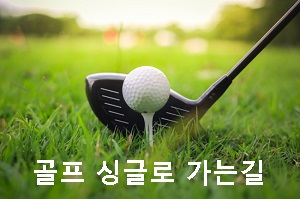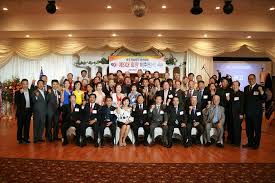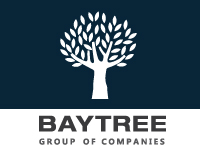CA
ON
골프 싱글로 가는길
전화: 647-291-2020
115 York Blvd Richmond Hill Toronto, ON

변호사 정찬수 법률사무소
전화: +82 2-536-1144
서울특별시 서초구 서초동 Toronto, ON
1.jfif)
싸인건설
전화: 416-909-7070
4065 Chesswood Dr. North York, ON
0.jfif)
캐나다 공인 컨설턴트 - 한인크레딧 컨설팅
전화: 416-897-8438
1 High Meadow Place, Unit 2 North York, ON

토론토 기쁨이 충만한 교회
전화: 416-663-9191
1100 Petrolia Rd Toronto, ON

호남향우회 (토론토)
전화: 647-981-0404
7 Bishop Ave. #2411 Toronto, ON

준비된 바이어 그룹 , BAYTREE 이너써클
전화: 416-226-5999
7030 Woodbine Ave. Suite 103 Toronto, ON

토론토 민박 전문집
전화: 416-802-5560
Steeles & Bathurst ( Yonge) Toronto, ON

홍이표치과
전화: 647-985-0456
9625 Yonge St #4, Richmond Hill, ON Toronto, ON
1.jfif)
한인 시니어 탁구협회
전화: 647-209-8933
1100 Petrolia Rd Toronto, ON
4.jpg)
대형스크린,LED싸인 & 간판 - 대신전광판
전화: 416-909-7070
4065 Chesswood Drive Toronto, ON

K-포차 ...미시사가(만두향프라자)
전화: 905-824-2141
169 DUNDAS ST. E. #7 Mississauga, ON

멋진스윙.. 장타를 원하십니까? 오랜경력의 윤프로가 확실하게 책임지도 해드립니다. 647.291.2022
블로그 ( 오늘 방문자 수: 2,050 전체: 15,275,357 )
USGA Revises Rules of Amateur Status for 2006
lucasyun
2005-08-27
USGA Revises Rules of Amateur Status for 2006
By The Golf Central Newsroom - August 26, 2005
FAR HILLS, N.J. -- Announcing the most significant revisions to its Rules of Amateur Status since their inception, the United States Golf Association has approved a change that will allow amateur golfers in the United States and Mexico to accept help with their expenses to play in golf competitions.
This change regarding expenses heads a number of revisions that are the result of a thorough two-year review of the Rules of Amateur Status. The USGA and The R&A, St. Andrews, Scotland, worked together in revising their respective codes for 2006, bridging more than 20 differences between their previous codes. All changes will be effective January 1, 2006.
Currently, only junior golfers are permitted to accept help from outside their families for expenses to play in individual competitions. With this change, players of all ages will be able to accept outside assistance regarding their tournament expenses, provided that the reimbursement for the expenses comes through their state or regional golf association.
밫his is a major advance for amateur golf,?said Fred Ridley, president of the USGA. 밒t gives amateurs who do not have access to substantial family resources the opportunity to receive help from friends and supporters so they can compete against their peers.?
A key change to the new Rules also regards the value of a prize won for a hole-in-one. This Prize Rule has been amended by the USGA in its code to allow an amateur golfer to accept a prize of any value for a hole-in-one made while playing golf. The hole-in-one issue remains the sole case where the two organizations did not reach agreement as the R&A will continue to prohibit prizes with a value that exceeds the prize limit that is otherwise applied, which is $750 in the United States and ?00 (or its equivalent) in Great Britain and the remainder of the world.
Finally, more consistent timeframes have been established for golfers seeking to regain their amateur status. In most cases, there will be a one-year wait for reinstatement if a player has been a professional for less than five years and a two-year wait if a professional for more than five years.
Questions and Answers Regarding Changes
to the 2006 Rules of Amateur Status
Effective January 1, 2006
With the Rule change regarding expenses, what are examples of a player뭩 expenses to a competition?
Examples of expenses include transportation (e.g., airfare and rental car), lodging, meals, the entry fee, and caddie fees.
How are juniors affected by the new Rule regarding the acceptance of expenses to competitions?
A junior golfer (defined as one who has not reached (i) the September 1 following graduation from secondary school or (ii) his 19th birthday, whichever comes first) may now accept help from outside his family to all competitions. (Through 2005 juniors are allowed to accept expenses only to amateur competitions.) If the outside help with expenses is for a junior competition, the expenses do not need to go through the player뭩 state or regional golf association. If the expenses are to a non-junior competition (e.g., the U.S. Amateur or the U.S. Open), the junior golfer may accept expenses, but the expenses must be paid through his state or regional golf association.
How are older players affected by the new Rule regarding the acceptance of expenses?
Previously, players other than juniors were not allowed to accept help from outside their families with expenses to play in a competition. Under the new Rule, all amateur golfers will have the ability to have their expenses to a competition reimbursed. For example, a friend could, through the player뭩 state or regional golf association, assist the player with his expenses to play in a competition.
Why does the reimbursement of expenses need to go through the player뭩 state or regional golf association?
Given the introduction of this significant change, the USGA wants to ensure that the new Rule is not abused and that a player is merely reimbursed for what he spent and does not receive additional payment.
Does the new exception for hole-in-one prizes apply to all formats of hole-in-one contests?
No. The Exception applies to a hole-in-one made 뱖hile playing golf,?a phrase that includes situations where the hole-in-one is incidental to a round of golf (including a partial round).
For example, a prize won for a hole-in-one must still conform to the prize limit of a retail value of $750 in the following formats:
?A contest in which a player is allowed more than one opportunity on a hole to win the prize;
?A contest conducted other than at a golf course (e.g., a simulator or driving range);
?A putting contest.
Does the new provision for hole-in-one prizes also apply to closest-to-the-hole prizes as well?
No. It applies only to hole-in-one prizes.
Under what circumstances will amateurs receive compensation for giving instruction in approved programs?
As the USGA believes that providing instruction for compensation is a key charge of the PGA of America and its members, the intention of the new Rule is to help support golf in areas where it is difficult to obtain enough PGA Professionals to help with golf programs. Only in very rare circumstances where adequate assistance from PGA Professionals is not available will the USGA consider, on a case by case basis, approving the payment of amateurs to give instruction. Before approving any such program, the USGA will be in close contact with the PGA of America.
What is the new Rule regarding sponsored handicap competitions?
Effective January 1, 2006, amateurs competing in sponsored handicap events (e.g., by a company) may accept expenses to play in its various stages, provided the event has been approved by the USGA for US-only events or the USGA and the governing body of any other country involved with the competition. This new provision applies only to competitions that are played on a net basis.